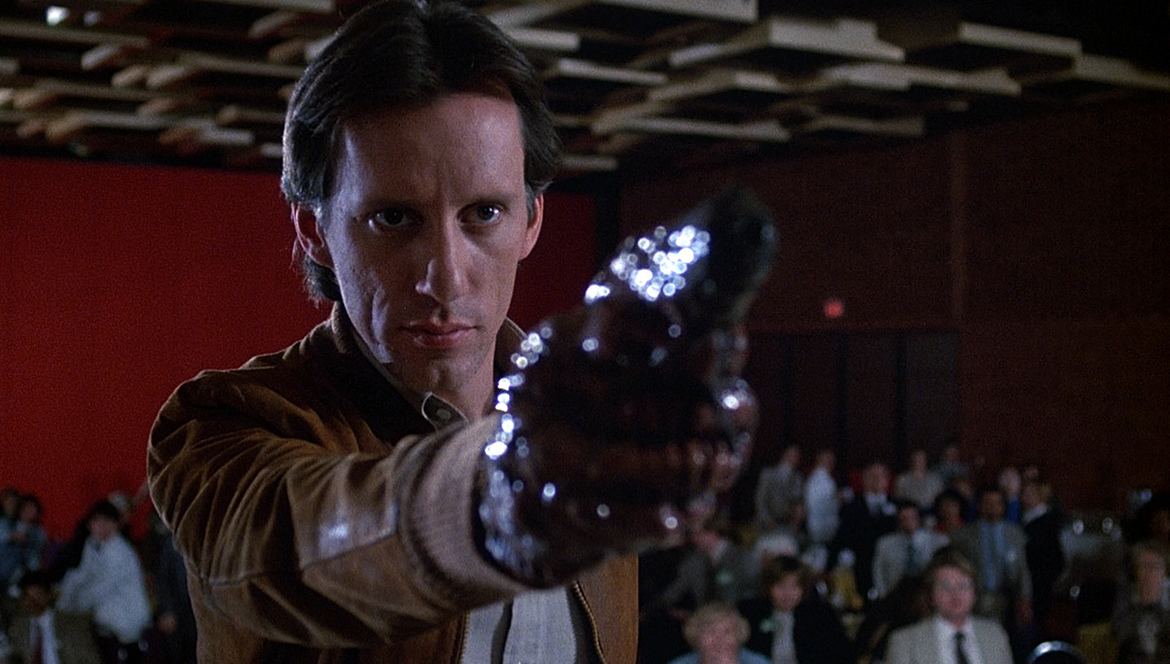Director – David Cronenberg – 1983 – Canada – Cert. 18 – 85m
*****
UK PAL laserdisc review.
Originally appeared in London Calling Internet. See also my review for What’s On In London during the film’s revival at the ICA.
Distributor Pioneer LDCE
Cat No: PFLEB 36041
£19.99
BBFC Certificate 18
Director David Cronenberg (1982)
Starring James Woods, Sonja Smits, Debbie Harry
Running Time 85 min
Mono
Widescreen: 1.85:1
Chaptered? Yes
CLV (Side 1)/CAV (Side 2)
2 Sides
A decade and a half on and still retaining its incredible power to shock, this is the film in which David Cronenberg first coined his battle cry, “Long Live the New Flesh.” If a clear lineage can be traced in his films from Shivers’ aphrodisiac turds through to Crash‘s orgasmic collision of swingers and twisted metal, Videodrome remains unique in Cronenberg’s oeuvre – a black joke, a come on to the censor.
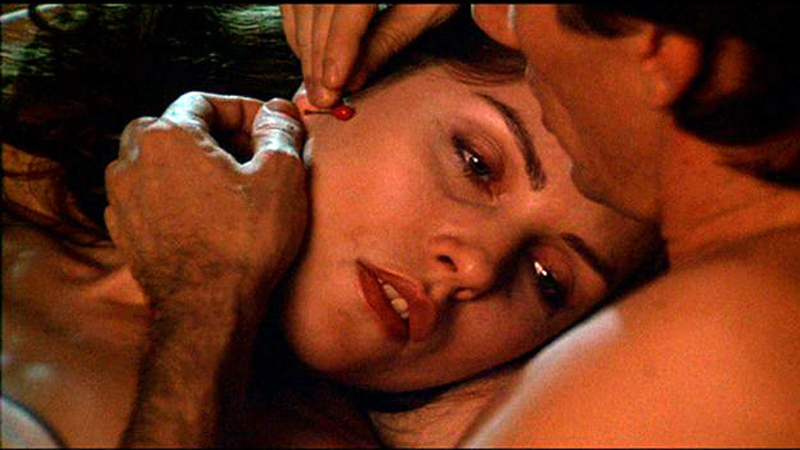
Just suppose, runs the pitch, violent porno (television signals) directly affected people causing them to hallucinate. This is the fate which befalls sleazoid Channel 83 cable television executive Max Renn (a young Woods in his best – and edgiest – role to date) who tells porno programme sales agents their merchandise is “too SOFT…I’m looking for something TOUGH.” (He stubs out his cigarette.)
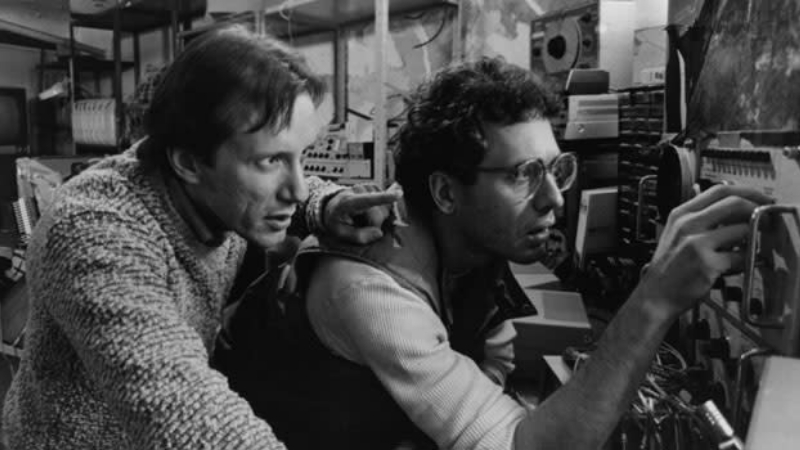
Not for Channel 83 the oriental softcore Samurai Dreams, featuring geisha and dildo – Renn’s interest lies rather in what illicit programming his basement technical whizz kid and self-styled pirate of the airwaves Harlan (Peter Dvorsky) can track down by satellite. And Harlan has locked on to a signal called Videodrome. Nil production values – just continuous beatings and torture for an hour. Renn is impressed.
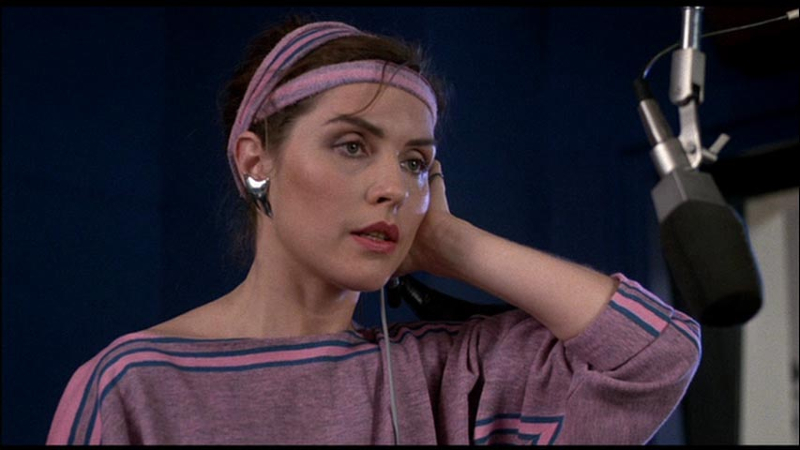
Meanwhile, Max is also being seduced by radio talk show host Nicky Brand (Debbie Harry) whose reaction on discovering that illicit VHS Videodrome tape in Renn’s collection at home contains, in his words, mutilation and torture, is that of arousal. “Not exactly sex,” he says. “Says who?”, she replies. What Renn doesn’t realise is that he’s being hooked on the Videodrome signal.
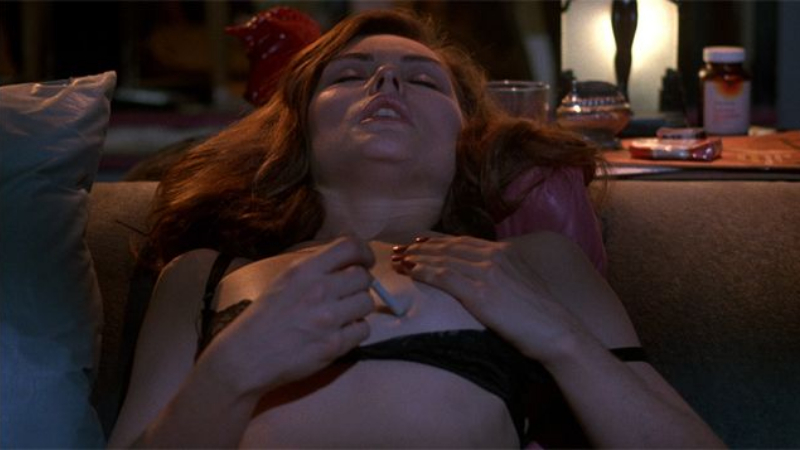
Soon he starts to hallucinate (for instance, hitting his P.A. girl Friday who temporarily – in his head and in our heads – becomes Nicky as if the film is momentarily hopping from one TV channel to another and back again). As a series of pulsating VHS cassettes containing programming from rival interest groups are inserted into the vagina-like slit that appears in Renn’s stomach, he finds himself sprouting metal tendrils connecting his arm and hand to his revolver which turn him into an assassin.
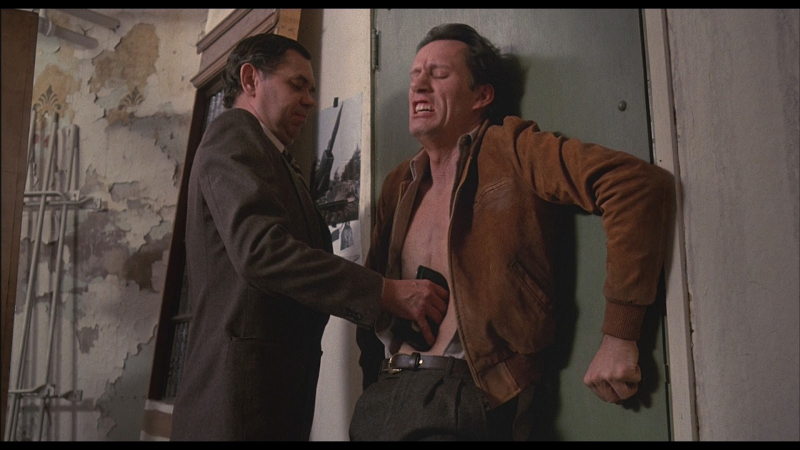
The narrative descends into ever-increasing madness and characters turn up bearing such names as Brian O’Blivion (“not my real name – the one I was born with – but my television name”), his protective daughter Bianca (“I am my father’s screen”) and their arch rival Barry Convex (“Why would anyone watch a scum show like Videodrome? Why did YOU watch it, Max?”).
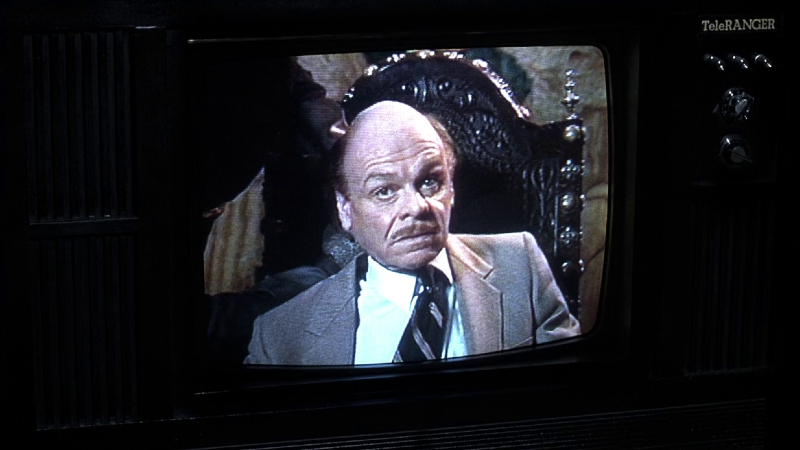
Derelicts hole up at the Cathode Ray Mission to pathetically watch TV sets in little cubicles, guns distort television screen membranes to shoot (or “deprogramme”) people and Renn finds himself literally burying his head in an image of Nicky’s lips on an organically expanding television screen.
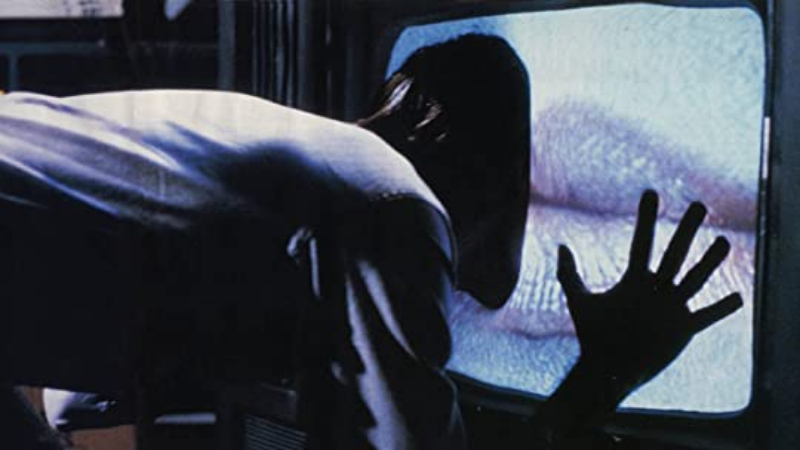
The extremely icky hallucinations – with the majority on a commendable CAV second side – are pretty weird even by Cronenberg’s standards, the director only returning to this sheer quantity and variety of extreme and grotesque imagery in his adaptation of William Burroughs’ Naked Lunch. And in this Director’s Cut of Videodrome, they’re more extreme than I can ever remember seeing them before.
(The Samurai Dreams sequence, for instance, here contains a lengthy shot of a fleshy dildo while the late sequence of a man splitting open and sprouting cancerous growths runs to several shots which add much to the immediate gore quotient but little to the overall emotional impact of the movie.)
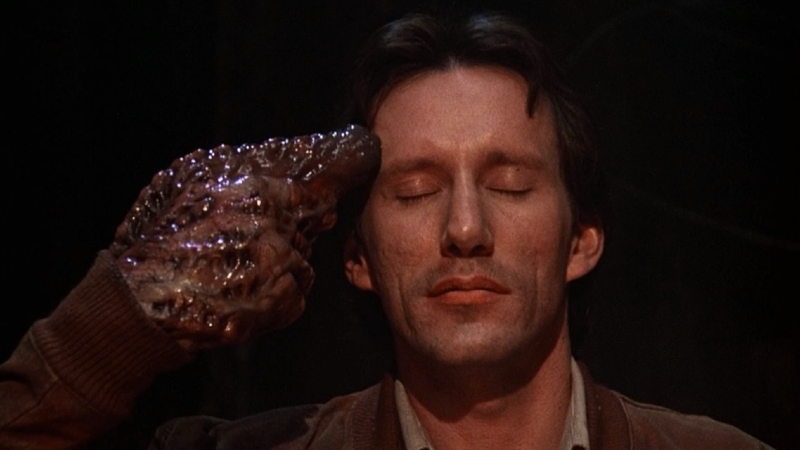
For those who expected an extra ending scene of Renn himself in the Videodrome Arena, rumoured to have existed in an early cut of the film, it’s not here – but again, would it really have added much? After all, Videodrome hangs together by dint of some bizarre subliminal logic – what ultimately makes Cronenberg’s film so disturbing isn’t the superficial gore (unsettling though that is) but rather the underlying emotional journey of its protagonist that affects the viewer on a far deeper level. And the ending of the film as it appears here – which is as it has previously appeared in UK cinemas and PAL VHS before – seems to represent the perfect conclusion of that journey.
Most of the visual action is concentrated towards picture centre, with very little happening off to pic sides – consequently widescreen presentation adds surprisingly little (though obviously in terms of composition it’s preferable to a fullscreen version, so we’re certainly not complaining). However, the sound mix (especially the score) is improved no end by this disc’s digital audio presentation (the film was made, incidentally, in mono). Chaptering is more than adequate (nineteen on side one, nine on side two).
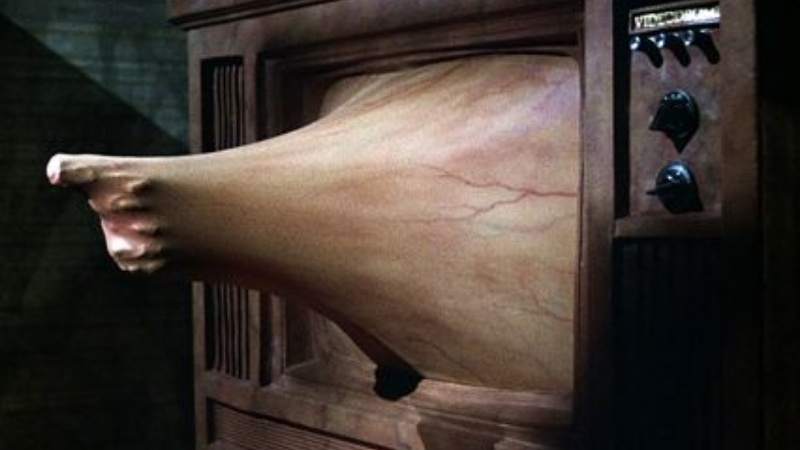
While it’s true that subject matter about inserting VHS cassettes into first VCRs and later hitherto unknown human orifices loses something when you have to load an LD not a VHS into your living room hardware beforehand, it’s equally true that the viewing experience is enhanced over the VHS experience by LD’s sound/picture quality (not to mention the little snippets of additional footage found in this version.)
In the end, though, widescreening and extra footage are, as it were, merely icing on the cake. But what a cake! Even Crash – impressive though it undeniably is and with all the controversy it generated to boot – isn’t quite up there with this extraordinary, earlier outing. Fifteen years on, Videodrome remains Cronenberg’s masterpiece – and Pioneer are to be congratulated for this timely and superb release on LD.
Film 5/5
Picture 5/5
Sound 5/5
This UK PAL laserdisc review originally appeared in London Calling Internet. See also my review for What’s On In London during the film’s revival at the ICA.
Trailer (1983:
Trailer (2020):
